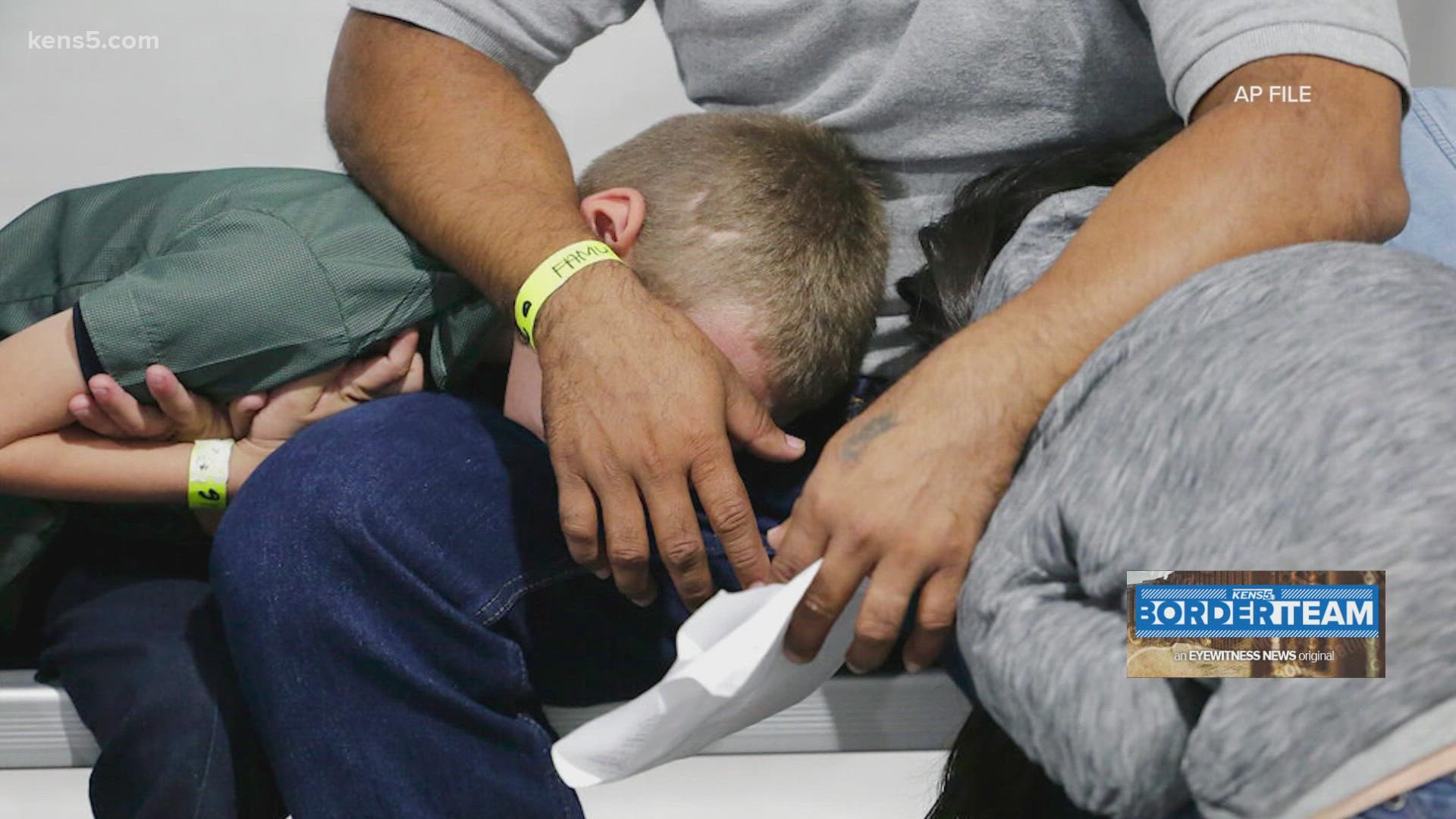BROWNSVILLE, Texas — Wednesday marks one week since the “Remain in Mexico” program was expanded to the Rio Grande Valley.
Officially known as the Migrant Protection Protocol, or MPP, the policy was put in place by former President Donald Trump and requires asylum-seekers to wait for their U.S. court date in Mexico. Human rights advocates and the Border Patrol Union representatives KENS 5 spoke with are critical of how it’s being reimplemented.
“The program is inherently inhumane,” said Julia Neusner, an associate attorney of Refugee Protection at Human Rights First. “People who are subjected (to) this policy are subjected to danger.”
Neusner spent a week talking to asylum-seekers instructed to wait for their U.S. court date in Ciudad Juarez, Mexico, across the border from El Paso.
“We've already seen serious access to counsel issues, due-process concerns, and people are generally scared and disoriented in a place that's unfamiliar to them,” she said.
President Joe Biden ended MPP when he took office. But a series of court decisions forced the administration to restart it. A slow return began in December, starting with El Paso, returning people to the very place Neusner said they’ve already been victimized.
“Many had been kidnapped,” she said. “One person I spoke with, a Nicaraguan asylum-seeker, had been kidnapped and tortured and held for ransom. We know that criminal organizations specifically target people in this program, because they know that they need to return periodically to the border for further U.S. asylum hearings.”
The International Organization for Migration, which is part of the U.N., has been asked by the U.S. and Mexican governments to helps\ migrants sent back to Mexico under MPP. OIM is providing transportation, COVID tests distributed in Mexico and transportation back to the U.S. for scheduled court dates and a COVID test before entering the U.S., as well as information about resources on the ground in Mexico and security risks.
“Another activity we're doing quite extensively along the northern border is we're supporting the shelters,” said Dana Graber Ladek, chief of mission of the International Organization for Migration in Mexico. “We're helping them to expand the capacity, so providing more beds also to create infrastructure, infrastructure improvements. Also, quarantine spaces if necessary.”
As of Tuesday afternoon, between three U.S. ports of entry, 381 people have been returned to Mexico to wait for their court hearings. But the number changes on a daily basis. The breakdown for Tuesday afternoon included eight people returned from Brownsville, 277 from El Paso, 96 from San Diego.
“We are committed to the principle that humane and orderly migration is meant to benefit both migrants and societies,” Graber Ladek said. “IOM is against the Migration Protection Protocol. It is because, first of all, it is against international and national law, and legal frameworks. It also is very precarious for these migrants who were being returned because of the security situations in northern Mexico, and also because of the COVID situation. And it goes against human principles.”
OIM said so far, mostly men have been placed into MPP. They come from Cuba, Nicaragua, Venezuela. None are from the Northern Triangle countries of Guatemala, Honduras and El Salvador
“In Rio Grande Valley it is 50 people per day as a pilot, which is kind of silly, because we had this thing already running around and super smooth,” said Chris Cabrera, vice president of National Border Patrol Council, a union for BP agents. Cabrera is stationed in the Rio Grande Valley.
“It's really not having too much of an effect on us because it's not being done the same way as before,” he said. “It doesn't really have the desired deterrence factor.”
The most recent CBP enforcement numbers from December show nearly 178,840 people crossed the Southwest Land Border, a 2%increase compared to November, the agency said. Twenty-three percent of the people have entered more than once, as Biden continues to expel the majority of migrants using Title 42, a CDC rule President Trump started using as a health emergency during the pandemic.
“I think not having that deterrence is inhumane,” Cabrera said. “Because our numbers dropped significantly (when MPP was used under Trump) they just stopped coming. And that's the humane aspect of it. Having people gamble everything, life and limb to come over here, all their savings with the off chance that they may get to stay; they might not even make it the whole way, because of issues on the Mexican side, you know, and we're just beckoning you to come over and just give it a shot.”
Cabrera’s been on the job 20 years, and said he’s seen all this before. He calls it a failure, on many different levels, including on the part of the current leadership.
“They need to come down here and look at it for what it is and fix it,” he said. “Look in the eyes of these kids or these women that have been subjected to some of these things and fix it for that and that alone. Not for politics or not for votes or redistricting or whatever the heck they're going to claim as the issue. The issue is people's lives are at stake here. And if you have any shred of humanity in you, you come down here and see what it is and fix it because there is a real issue.”

